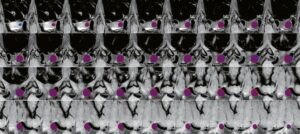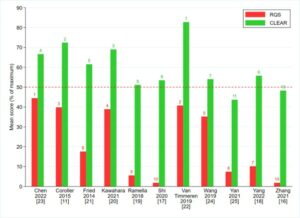This study featured a design of a deep learning-based framework for the automatic segmentation of intracranial aneurysms (IAs) on MR T1 images while also testing the robustness and performance of the framework. The authors were able to conclude that their deep learning framework could effectively detect and segment IAs using clinical routine T1 sequences, which offers potential in improving the detection of latent intracranial aneurysms, enabling early identification.
Key points:
- There is no segmentation method based on clinical routine T1 images. Our study shows that the proper deep learning framework can effectively localize the intracranial aneurysms.
- The T1-based segmentation and detection method is more universal than other angiography-based detection methods, which can potentially reduce missed diagnoses caused by the absence of angiography images.
- The deep learning framework is robust and has the potential to be applied in a clinical setting.
Authors: Junda Qu, Hao Niu, Yutang Li, Ting Chen, Fei Peng, Jiaxiang Xia, Xiaoxin He, Boya Xu, Xuge Chen, Rui Li, Aihua Liu, Xu Zhang & Chunlin Li













